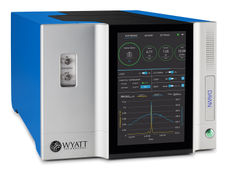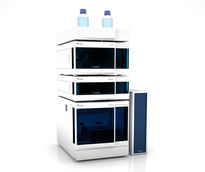Joint effort for new detector technologies
Helmholtz Association funds DESY-China cooperation for ATLAS upgrade
The Helmholtz Association will fund a joint research project of DESY and Chinese scientists on the next generation of particle detectors. A working group headed by DESY scientist Ingrid-Maria Gregor and Xinchou Lou from the Chinese Institute of High Energy Physics (IHEP) will develop and test new technologies for silicon strip detectors for the LHC experiment ATLAS. They are to be implemented from 2025 at the so-called high-luminosity LHC which has an increased collision rate. As of January 2015, the cooperation will be funded with 360 000 euros from the Initiative and Networking Fund of the Helmholtz Association. The two research partners contribute additional funds.
With the discoveryof the Higgs particle in the LHC detectors ATLAS and CMS, particle physicists have already made history at the largest accelerator in the world. However, the exact characterization of the new particle and an intensive search of new physics beyond the standard model have yet to come. Important for both is a large amount of data in the proton-proton collisions at the LHC.
Therefore, the researchers are preparing a major upgrade of the detectors to a fivefold increase in the collision rate. This requires a new generation of central detector components, such as the silicon strip detector in ATLAS, not only exactly identifying an unprecedented flood of particles, but also being resistant to the high radiation rate due to the flying particles – conditions that no detector so far had to meet and that require new technological developments.
DESY and IHEP scientists will now join forces as Helmholtz-CAS Joint Research Group to develop the new generation of semiconductor detectors. In particular, extensive studies on radiation resistance and the development of new high and low voltage power supplies for the modules are on the task list of the scientists. The investigation of the thermal behavior of the modules and the minimization of so-called dead matter in the detector, which slows down particles but does not contribute to the detector performance itself, are also on the agenda of researchers.
“Both partners, DESY and IHEP bring in their great experience in particle physics into the collaboration,” says DESY project manager Ingrid-Maria Gregor. “In the new Joint Research Group, particularly young researchers can learn from this expertise – so we open a new chapter in the long-standing cooperation between DESY and IHEP.”
The project “Novel Technologies for the New ATLAS Silicon Micro-Strip Detector at the High Luminosity LHC” was selected together with four other projects out of a total of 23 applications for a Helmholtz-CAS Joint Research Group. The applications were reviewed by international experts of both the Helmholtz Association and the Chinese Academy of Sciences (CAS).
Organizations
Other news from the department science
These products might interest you

DAWN® by Wyatt Technology
The instrument for Multi-Angle Light Scattering (MALS): The DAWN® from Wyatt Technology
The world's most advanced light scattering instrument for absolute characterization of macromolecules

AZURA Analytical HPLC by KNAUER
Maximize your analytical efficiency with customized HPLC system solutions
Let your application define your analytical system solution

Get the chemical industry in your inbox
By submitting this form you agree that LUMITOS AG will send you the newsletter(s) selected above by email. Your data will not be passed on to third parties. Your data will be stored and processed in accordance with our data protection regulations. LUMITOS may contact you by email for the purpose of advertising or market and opinion surveys. You can revoke your consent at any time without giving reasons to LUMITOS AG, Ernst-Augustin-Str. 2, 12489 Berlin, Germany or by e-mail at revoke@lumitos.com with effect for the future. In addition, each email contains a link to unsubscribe from the corresponding newsletter.


























































